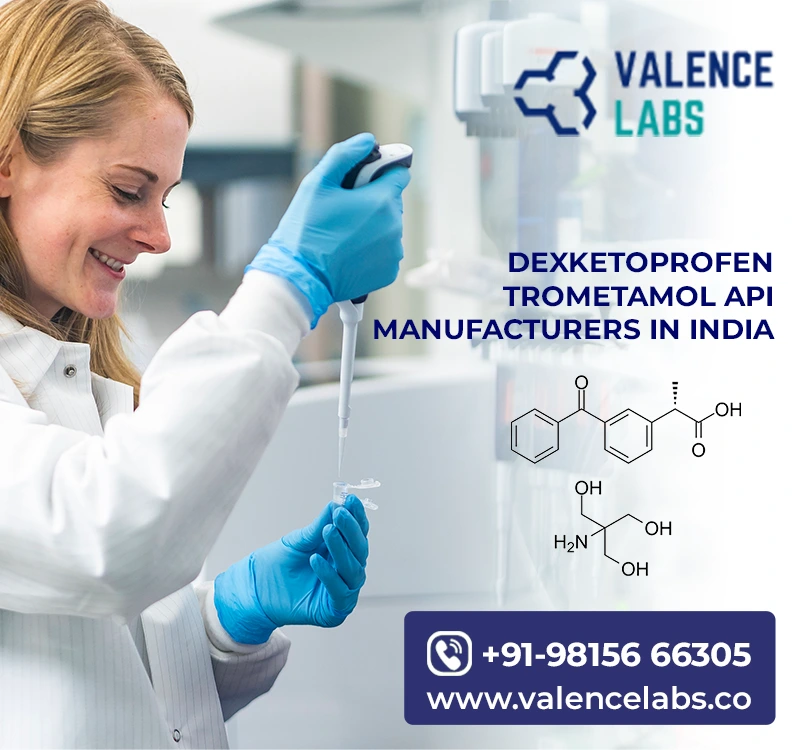Future of Pharma API Manufacturing: Key Trends Shaping the Industry in 2025

Top 10 Pharma API Manufacturers in India 2025
December 14, 2024
Opportunities For API Manufacturing in Pharma Industry
December 31, 2024Do you know that pharmaceutical manufacturing is about to undergo a massive transformation in the next few years? With growing demands, new regulations, and technological advancements, the pharmaceutical industry is evolving faster than ever. One area that is seeing significant changes is the production of Active Pharmaceutical Ingredients (APIs). By 2025, API manufacturing is expected to be fundamentally different, with new technologies, processes, and strategies making the production of medications more efficient, sustainable, and safer.
In this blog, we will explore the key trends that are shaping the future of API manufacturing and how companies like Valence Labs are leading the charge in driving innovation. So, if you’re curious about what’s next for pharma manufacturing, read on!
What Are Active Pharmaceutical Ingredients (APIs)?
Before diving into the trends, it’s important to understand what APIs are. Active Pharmaceutical Ingredients (APIs) are the main components in a drug that have the intended therapeutic effect. For instance, in a painkiller, the API is the chemical compound that relieves pain. The rest of the pill, often referred to as the excipients, helps deliver the API in the right form, whether it’s a tablet, liquid, or injection.
API manufacturing is a complex and highly regulated process. It involves multiple steps including chemical synthesis, fermentation, extraction, and purification. This process must meet stringent quality and safety standards to ensure that the final product is both effective and safe for patients.
Key Trends Shaping API Manufacturing in 2025
The world of pharmaceutical manufacturing is rapidly evolving. Here are some of the most important trends that will shape the industry in 2025:
1. Automation and AI-Driven Processes
One of the most transformative trends in API manufacturing is the integration of automation and artificial intelligence (AI) into the production process. Automation can help streamline operations, reduce human error, and improve efficiency. With AI, manufacturers can predict potential issues, optimize production lines, and even perform quality control checks in real time.
- Why It Matters: Automation will allow companies to produce APIs faster and at lower costs. AI can also help predict which batches might fail quality tests, which saves time and resources.
- Example: Automated systems can monitor temperature, pressure, and pH levels in real time, adjusting them to ensure optimal conditions for API production.
2. Continuous Manufacturing
Traditional API manufacturing typically follows a batch process, where ingredients are processed in large batches and then tested for quality. Continuous manufacturing, on the other hand, involves the constant production of API, with ingredients being processed continuously through the system.
- Why It Matters: Continuous manufacturing offers several advantages, including increased efficiency, reduced production costs, and the ability to scale production more easily.
- Example: Instead of producing a batch of APIs over several weeks, continuous systems produce APIs on a steady, uninterrupted basis, allowing for faster time-to-market.
3. Green Chemistry and Sustainability
Sustainability is no longer a buzzword; it’s a necessity. The pharmaceutical industry, including API manufacturing, is increasingly focusing on green chemistry practices to minimize waste, reduce harmful emissions, and use renewable resources. This trend will only intensify as global regulations tighten around sustainability.
- Why It Matters: The adoption of green chemistry will help reduce the environmental impact of API production, lower costs related to waste disposal, and help companies meet regulatory standards.
- Example: Solvent recovery systems and the use of renewable energy sources will help make the API manufacturing process more sustainable.
4. Advanced Manufacturing Technologies
In 2025, manufacturers will increasingly rely on advanced technologies like 3D printing, nanotechnology, and biotechnology to improve the efficiency and precision of API manufacturing.
- Why It Matters: These technologies will allow for more precise control over the manufacturing process, improve the bioavailability of drugs, and potentially open up new ways to deliver personalized medicines.
- Example: 3D printing could allow for the creation of more complex drug delivery systems, while nanotechnology might enable better targeting of active ingredients within the body.
5. Regulatory and Compliance Changes
Regulations surrounding API manufacturing are becoming more stringent, with an increased focus on quality assurance, safety, and environmental sustainability. Regulatory bodies like the FDA (Food and Drug Administration) and EMA (European Medicines Agency) will continue to tighten their oversight of API production processes.
- Why It Matters: Manufacturers will need to adapt to stricter guidelines in order to stay competitive and ensure their products meet the necessary quality standards.
- Example: The FDA may introduce new guidelines for API manufacturing that require real-time monitoring of critical process parameters, pushing companies to adopt more advanced systems.
How API Manufacturers Are Adapting to These Trends
API manufacturers are already investing in new technologies and strategies to keep up with these trends. Companies like Valence Labs are playing a critical role in driving innovation in this space. By focusing on cutting-edge technologies, sustainability, and automation, they’re positioning themselves to meet the challenges of 2025 and beyond.
- Sustainability Initiatives: Companies are moving towards energy-efficient systems and greener manufacturing processes to reduce their carbon footprint.
- AI Integration: Many API manufacturers are adopting AI-based platforms for predictive maintenance, real-time monitoring, and supply chain optimization.
- Partnerships and Collaborations: The future of API manufacturing will also see more partnerships between pharma companies and tech firms. This will allow for more seamless integration of new technologies, such as automation and AI, into existing processes.
Challenges in API Manufacturing
While the future of API manufacturing looks promising, there are still significant challenges to overcome:
- High Initial Investment: Advanced technologies such as automation, AI, and continuous manufacturing require substantial upfront investment. Smaller companies might struggle to adopt these innovations without adequate funding.
- Supply Chain Complexity: With global supply chains becoming more interconnected, manufacturers need to be prepared for potential disruptions due to geopolitical factors, natural disasters, or even pandemics.
- Regulatory Hurdles: As regulations around API manufacturing become more stringent, companies will need to stay ahead of compliance requirements, which can be both time-consuming and costly.
What Does This Mean for the Pharma Industry in 2025?
By 2025, the pharma industry will likely see a complete overhaul in how APIs are manufactured. Increased automation, sustainable practices, and advanced technologies will enable companies to produce drugs more efficiently and cost-effectively. The push for higher quality and regulatory compliance will drive innovation, while companies like Valence Labs will play a crucial role in pioneering new solutions for the industry.
Ultimately, these changes will benefit everyone — from pharmaceutical manufacturers to healthcare providers, and most importantly, the patients who rely on these medications for their health and well-being.
FAQs about the Future of API Manufacturing
1. What is continuous manufacturing in the pharmaceutical industry?
Continuous manufacturing refers to a process where APIs are produced without interruption, unlike traditional batch production. This method allows for more efficient and cost-effective production and a faster time to market for new drugs.
2. How is AI being used in pharmaceutical manufacturing?
AI is used to optimize production processes, predict equipment failure, and improve product quality by monitoring and adjusting variables in real time. It also helps with supply chain management by predicting demand and ensuring the timely delivery of raw materials.
3. What is green chemistry in API manufacturing?
Green chemistry involves using environmentally friendly methods to produce APIs, such as using renewable energy sources, minimizing waste, and using less harmful chemicals in the production process.
4. How does 3D printing impact pharmaceutical manufacturing?
3D printing allows for the creation of complex drug delivery systems and personalized medicine. It can also make the manufacturing process more flexible and cost-efficient.
5. What are the biggest challenges facing the API manufacturing industry?
The biggest challenges include high initial investments for new technologies, complexity in global supply chains, and navigating increasingly stringent regulatory requirements.
Conclusion
The future of API manufacturing is full of promise, driven by technological advancements and a commitment to sustainability. By 2025, the pharma industry will be leveraging automation, continuous manufacturing, and AI to deliver high-quality drugs more efficiently than ever before. While challenges remain, these innovations will ultimately lead to safer, more effective medications and a stronger, more resilient pharmaceutical industry.
For companies like Valence Labs, staying ahead of these trends will ensure they remain leaders in API manufacturing and continue to support the healthcare industry’s need for high-quality pharmaceutical products.





